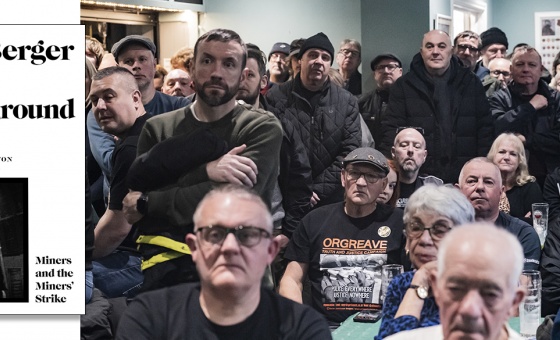This is the last article you can read this month
You can read more article this month
You can read more articles this month
Sorry your limit is up for this month
Reset on:
Please help support the Morning Star by subscribing here
THE top United Nations court ordered Israel today to immediately halt military operations in the southern Gaza city of Rafah, but stopped short of ordering a full ceasefire in the devastated territory.
While Israel is unlikely to comply with the order by the International Court of Justice (ICJ), it will ratchet up the pressure on the increasingly isolated country.
Criticism of Israel’s conduct in Gaza has been growing, particularly regarding operations in Rafah — and even from its closest ally, the United States.
This week alone, Norway, Ireland and Spain announced that they would recognise a Palestinian state and the chief prosecutor of the International Criminal Court requested arrest warrants for Israeli leaders, along with Hamas officials.
Israeli Prime Minister Benjamin Netanyahu is also under heavy pressure at home to end the war, which was triggered when Hamas-led militants stormed into Israel, killing 1,200 people, most civilians, and taking some 250 captive.
Thousands of Israelis have joined weekly demonstrations calling on the government to reach a deal to bring the hostages home, fearing that time is running out.
While the ICJ ruling is a blow to Israel’s international standing, the court does not have a police force to enforce its orders. In another case on its docket, Russia has so far ignored a 2022 order by the court to halt its full-scale invasion of Ukraine.
Ahead of the ruling, Israel signalled that it, too, would brush off an ICJ order to stop its operations.
“No power on Earth will stop Israel from protecting its citizens and going after Hamas in Gaza,” government spokeman Avi Hyman told a press briefing on Thursday.
ICJ president Nawaf Salam read out the ruling as a small group of pro-Palestinian protesters demonstrated outside.
Fears about an operation in Rafah have “materialised,” the ruling said, and “the humanitarian situation is now to be characterised as disastrous.”
The court also ordered Israel to keep the Rafah crossing into Egypt open “for unhindered provision at a scale of urgently needed basic services and humanitarian assistance.”
The court did not call for a full ceasefire throughout Gaza as South Africa, which brought the case, had requested at hearings last week.
The ceasefire request is part of a case filed late last year, accusing Israel of committing genocide during its Gaza campaign.
Israel vehemently denies the allegations. The case will take years to resolve, but South Africa wants interim orders to protect Palestinians while the legal wrangling continues.
The court ruled on Friday that Israel must ensure access for any fact-finding or investigative mission sent by the UN to investigate the genocide allegations.
At public hearings at the ICJ last week, South African ambassador to the Netherlands Vusimuzi Madonsela urged the panel of 15 international judges to order Israel to “totally and unconditionally withdraw” from the Gaza Strip.
The court has already found that Israel’s military operations pose a “real and imminent risk” to the Palestinian people in Gaza.
Israel’s offensive has killed more than 35,000 Palestinians, according to Gaza’s Health Ministry. The operation has obliterated entire neighbourhoods, sent hundreds of thousands of people fleeing their homes and pushed parts of the territory into famine.
“This may well be the last chance for the court to act,” Irish lawyer Blinne Ni Ghralaigh, who is part of South Africa’s legal team, told judges last week.
Israel rejects the claims by South Africa, a nation with historic ties to the Palestinian people.
In January, ICJ judges ordered Israel to do all it could to prevent death, destruction and any acts of genocide in Gaza, but the panel stopped short of ordering an end to the military offensive.
In a second order in March, the court said Israel must take measures to improve the humanitarian situation.
The ICJ rules in disputes between nations. A few miles away, the International Criminal Court (ICC) files charges against individuals it considers most responsible for war crimes, crimes against humanity and genocide.
On Monday, ICC chief prosecutor Karim Khan said he has asked the court’s judges to approve arrest warrants for Mr Netanyahu, Defence Minister Yoav Gallant and three top Hamas leaders — Yahya Sinwar, Mohammed Deif and Ismail Haniyeh — on suspicion of committing war crimes and crimes against humanity in the Gaza Strip and Israel.
Israel is not an ICC member, so even if the arrest warrants are issued, Mr Netanyahu and Mr Gallant do not face any immediate risk of prosecution. But the threat of arrest could make it difficult for them to travel abroad.










